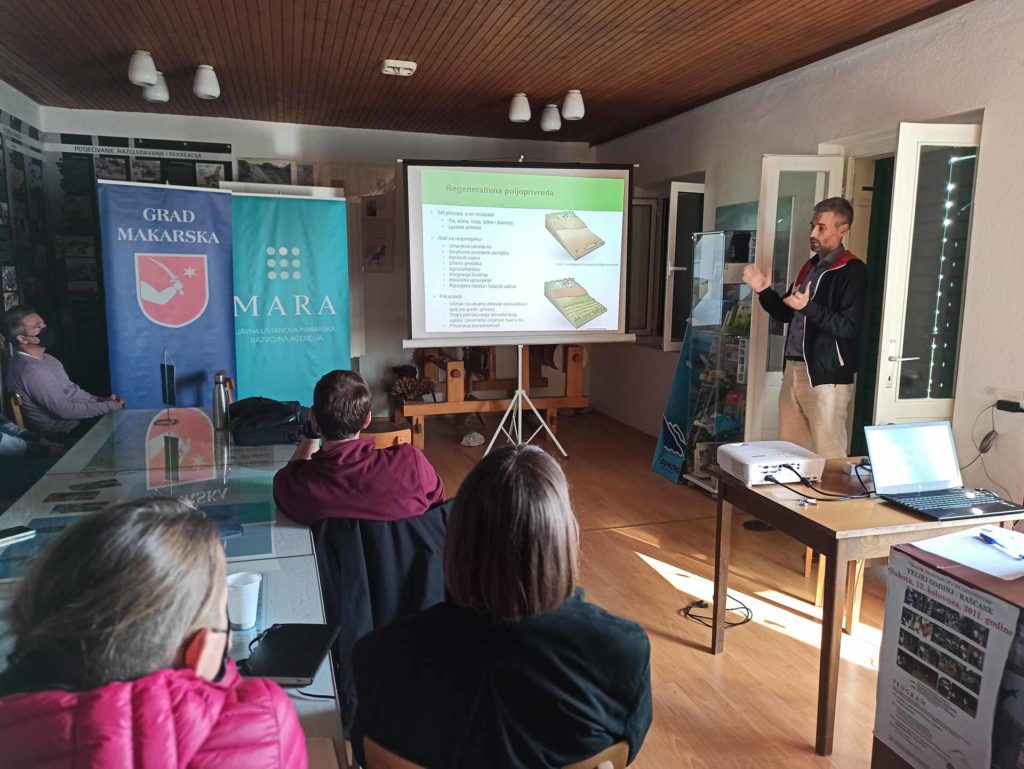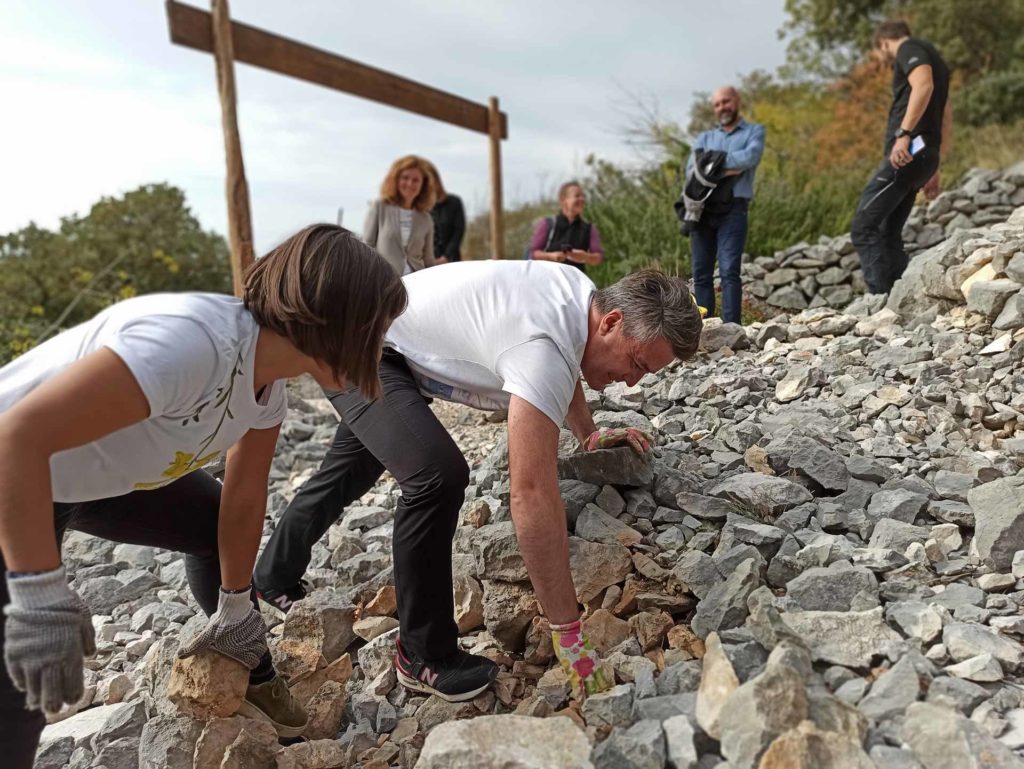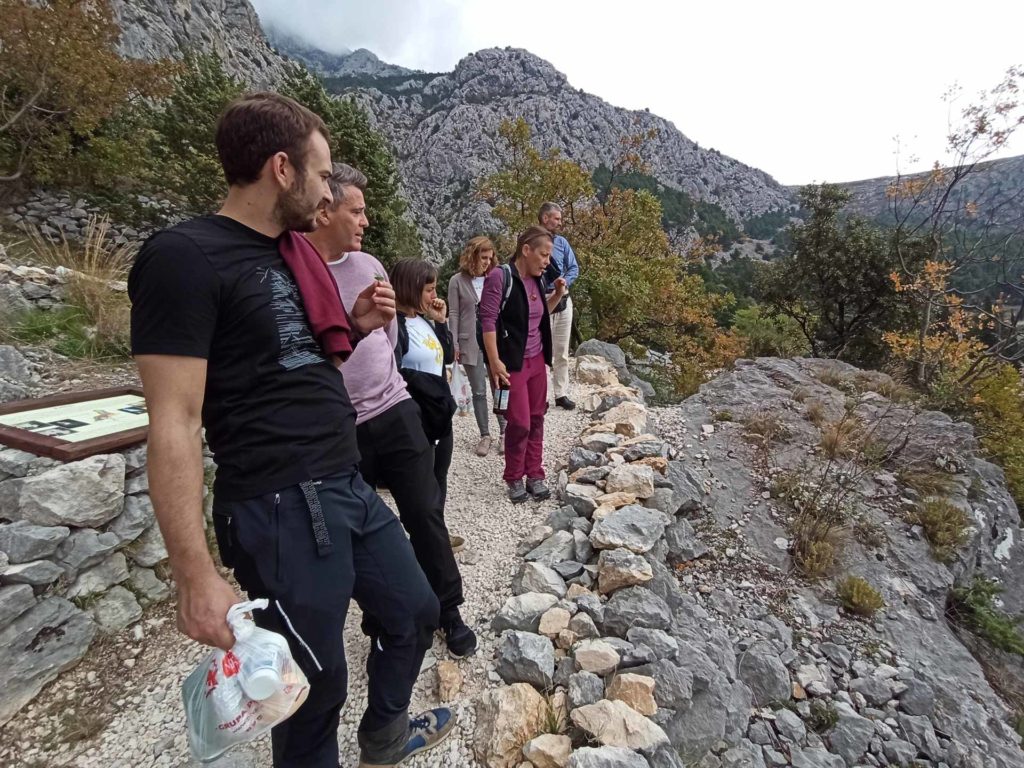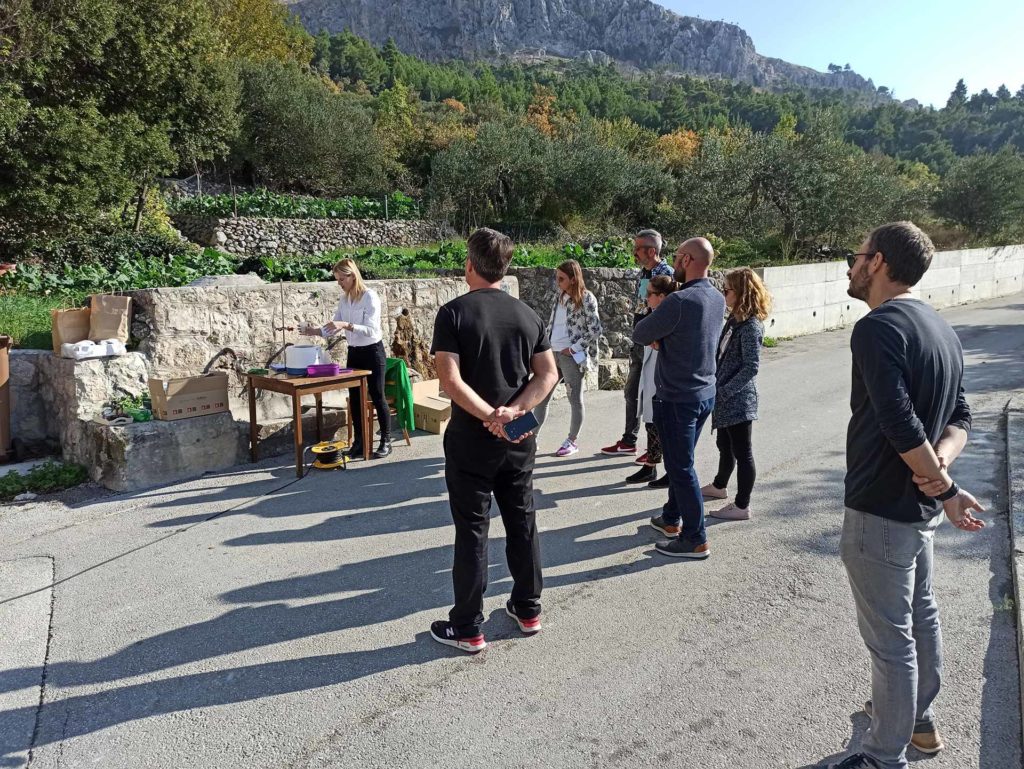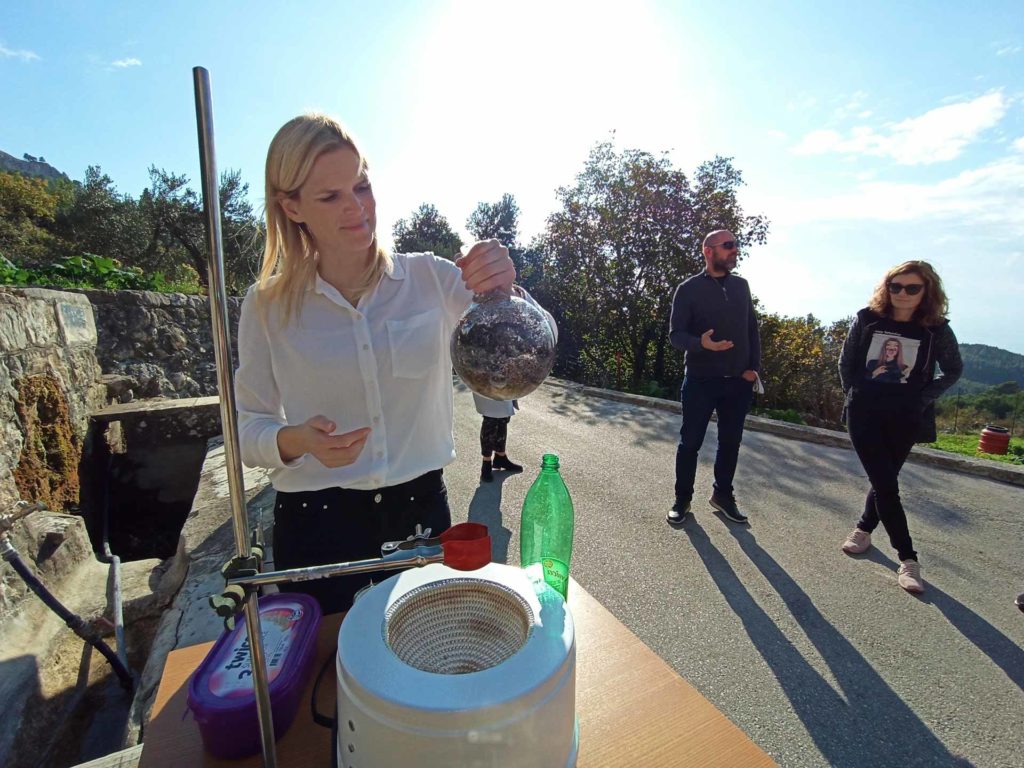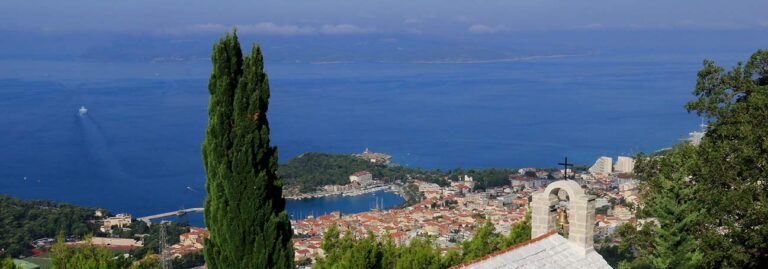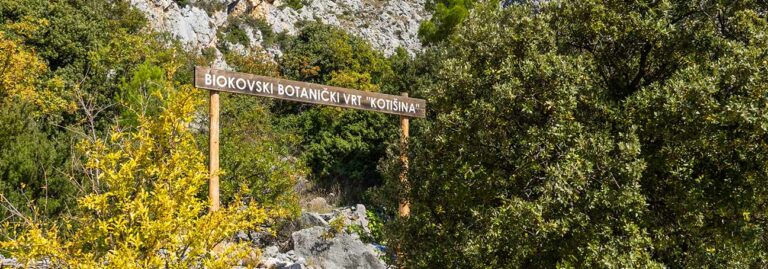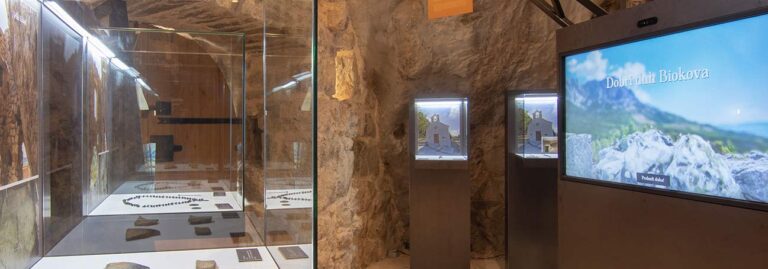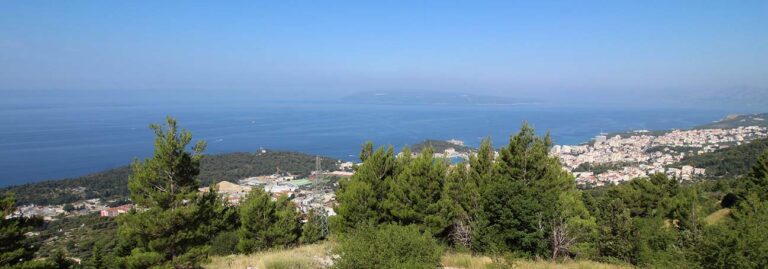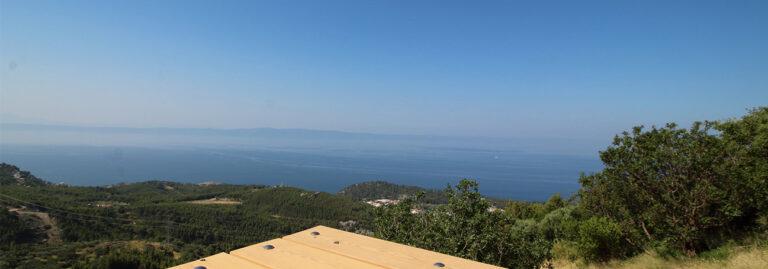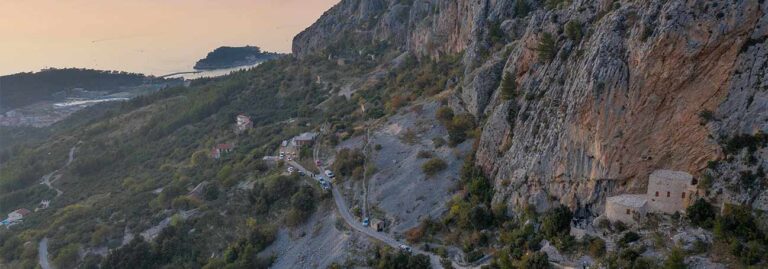Permaculture in the Biokovo Botanical Garden Kotišina – Dalmatian architecture, dry stone walls, medicinal and aromatic plants, urban permaculture, production of essential plants…

As part of the project “Revitalization of the cultural and historical heritage of the hamlet of Kotišina” in Kotišina, an educational cycle was conducted for representatives of project holders and project partners. Employees of the City of Makarska, JU MARA, PP Biokovo, Makarska Tourist Board, Makarska City Museum and the company Tip Extreme through a two-day program held on 12th and 13th of November gained new knowledge and skills through a series of lectures and workshops.
We started the cycle on Thursday morning, with a short presentation of the work of the Permaculture Dalmatia Association held by Ivan Rako – President of the Association and permaculture designer, and thus introduced the participants to the activities of the Association and planned activities. The application of permaculture design in shaping of the environment was presented by Hrvoje Bota, architect, permaculture designer and director of the social enterprise Održivo d.o.o.
Ana Burić, architect, permaculture designer and member of the association Four Cities of Dragodid, followed up on the activities already carried out in the hamlet of Kotišina and the topic of shaping the environment with a lecture on drywall construction and its importance in Dalmatia. This ended the morning part of the program and we went on a field trip to the hamlet of Kotišina and the practical part of the training.
Moving along the path towards the newly renovated Veliki Kaštel, we studied the characteristics of the landscape and its specifics – position in relation to Biokovo, slopes, orientation and questioned the ways of arranging the path, preserving flora and fauna and shaping in accordance with nature and user needs.
Also, we immediately began to notice wild edible plants thanks to the experienced eye of Antonija Mihaljević, a member of the association Permaculture Dalmatia, permaculture designer and connoisseur of plants. The landscape and the plants fascinated us until the moment we spotted a dry stone wall where we needed to intervene – we stopped there, rolled up our sleeves and demonstrated the technique of restoring the dry stone wall on the spot. At the end of the practical program, we visited the interpretation center in the renovated Veliki Kaštel, which ended the first day of education.
The next day our guests were Ivan Rako and an associate of the association, Ph.D. Tonka Nincevic from the Institute for Adriatic Cultures. The first lecture was given on the topic of urban permaculture, which the participants experienced as a motivation for the usage of some of the permaculture solutions in the urban environment.
Furthermore, Tonka Ninčević, through two lectures with interaction with the participants brought closer the historical development, nurturing, cultivation and application of medicinal and aromatic plants in the world and in our areas. We concluded the lectures with a dynamic lecture on the topic of edible plants of our region where the participants had the opportunity to show all the splendor of their already existing knowledge about the edible plants that surround us.
After a short break for preparation, it was time for a practical workshop on the properties and applications of medicinal and aromatic herbs. For the needs of this workshop, Tonka Nincevic prepared a series of activities for the participants. From recognizing dried herbs in jars by sight and smell to the numerous essential oils, macerates and hydrolates with whichwhse names she skillfully hid so that participants could try to recognize them by smell. She also set up a mobile distiller at the workshop and everyone could get acquainted with the process of obtaining essential oil from dried herbs. Finally, the participants filled the tea bags with dried herbs to take home, thus concluding this educational program, along with the preserved scents of Mediterranean herbs.


